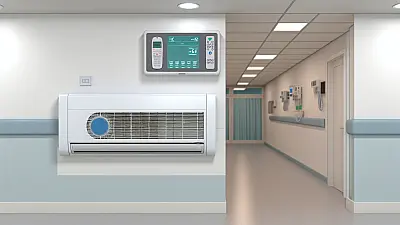GLENWOOD, MN - State health inspectors found that Glenwood Village Care Center failed to maintain proper food temperatures, putting residents at risk of foodborne illness during a May 2025 inspection.

Cold Food Served to Vulnerable Residents
The inspection revealed systematic problems with food temperature control at the 719 Southeast 2nd Street facility. Multiple residents reported receiving meals that were served at unsafe temperatures, violating basic food safety protocols designed to protect nursing home residents who are particularly vulnerable to foodborne illnesses.
During the inspection, residents consistently reported receiving cold hot foods and improperly cooled cold items. One resident told inspectors that "the meat and potatoes were cold and the potato salad was lukewarm," indicating a breakdown in the facility's temperature control systems. Another resident had previously raised these concerns during a resident council meeting, stating that despite bringing up issues about cold food, "nothing had ever been done about it."
The facility's own Dietary Manager confirmed that hot foods should be maintained at least 135 degrees Fahrenheit, while cold foods must be kept at 41 degrees Fahrenheit or below. These temperature requirements exist because the "danger zone" between 41-135 degrees Fahrenheit allows harmful bacteria to multiply rapidly, potentially causing serious illness in elderly residents whose immune systems may already be compromised.
Medical Risks for Elderly Population
Temperature control violations pose significant health risks for nursing home residents, who are among the most vulnerable populations for foodborne illness. When hot foods cool below 135 degrees Fahrenheit, bacteria such as Clostridium perfringens, Staphylococcus aureus, and Bacillus cereus can multiply quickly. For elderly residents, foodborne illnesses can lead to severe dehydration, hospitalization, and in some cases, life-threatening complications.
The lukewarm temperature of the potato salad mentioned by residents is particularly concerning, as dairy-based and mayonnaise-containing foods are high-risk items that can harbor dangerous bacteria when not properly refrigerated. Cold foods that reach temperatures above 41 degrees Fahrenheit create ideal conditions for bacterial growth, potentially causing symptoms ranging from gastrointestinal distress to more serious systemic infections in vulnerable residents.
Facility Policy Contradicted by Practice
The inspection revealed that Glenwood Village Care Center had appropriate policies in place but failed to implement them effectively. The facility's Food Service Policy, which was revised on May 20, 2025, clearly stated that hot foods must be served hot and cold foods served cold, with specific temperature requirements matching industry standards.
However, the documented temperature violations indicate a gap between written policies and actual food service practices. This disconnect between policy and implementation suggests potential issues with staff training, equipment maintenance, or monitoring procedures that ensure food safety standards are consistently met.
Proper food temperature maintenance requires systematic monitoring throughout the food service process, from cooking and holding to serving. Industry best practices include regular temperature checks using calibrated thermometers, proper equipment maintenance, and staff training on food safety protocols.
Regulatory Response and Standards
Food temperature control falls under federal nursing home regulations that require facilities to provide nutritious meals that meet residents' dietary needs while maintaining food safety standards. The violation was classified as causing "minimal harm or potential for actual harm," affecting "some" residents at the facility.
The Centers for Medicare & Medicaid Services requires nursing homes to follow established food safety protocols, including proper temperature maintenance, to protect residents' health and well-being. Facilities that fail to maintain these standards face potential penalties and must develop corrective action plans to address deficiencies identified during inspections.
Additional Issues Identified
Beyond the primary food temperature violations, the inspection documented concerns about the facility's response to resident complaints. The fact that residents had previously raised food temperature concerns through proper channels, yet problems persisted, suggests potential issues with the facility's quality assurance and resident feedback processes.
The timing of the facility's policy revision on May 20, 2025 - just one day before the inspection concluded - may indicate that the facility was attempting to address known deficiencies in their food service protocols.
Full Inspection Report
The details above represent a summary of key findings. View the complete inspection report for Glenwood Village Care Center from 2025-05-21 including all violations, facility responses, and corrective action plans.
💬 Join the Discussion
Comments are moderated. Please keep discussions respectful and relevant to nursing home care quality.